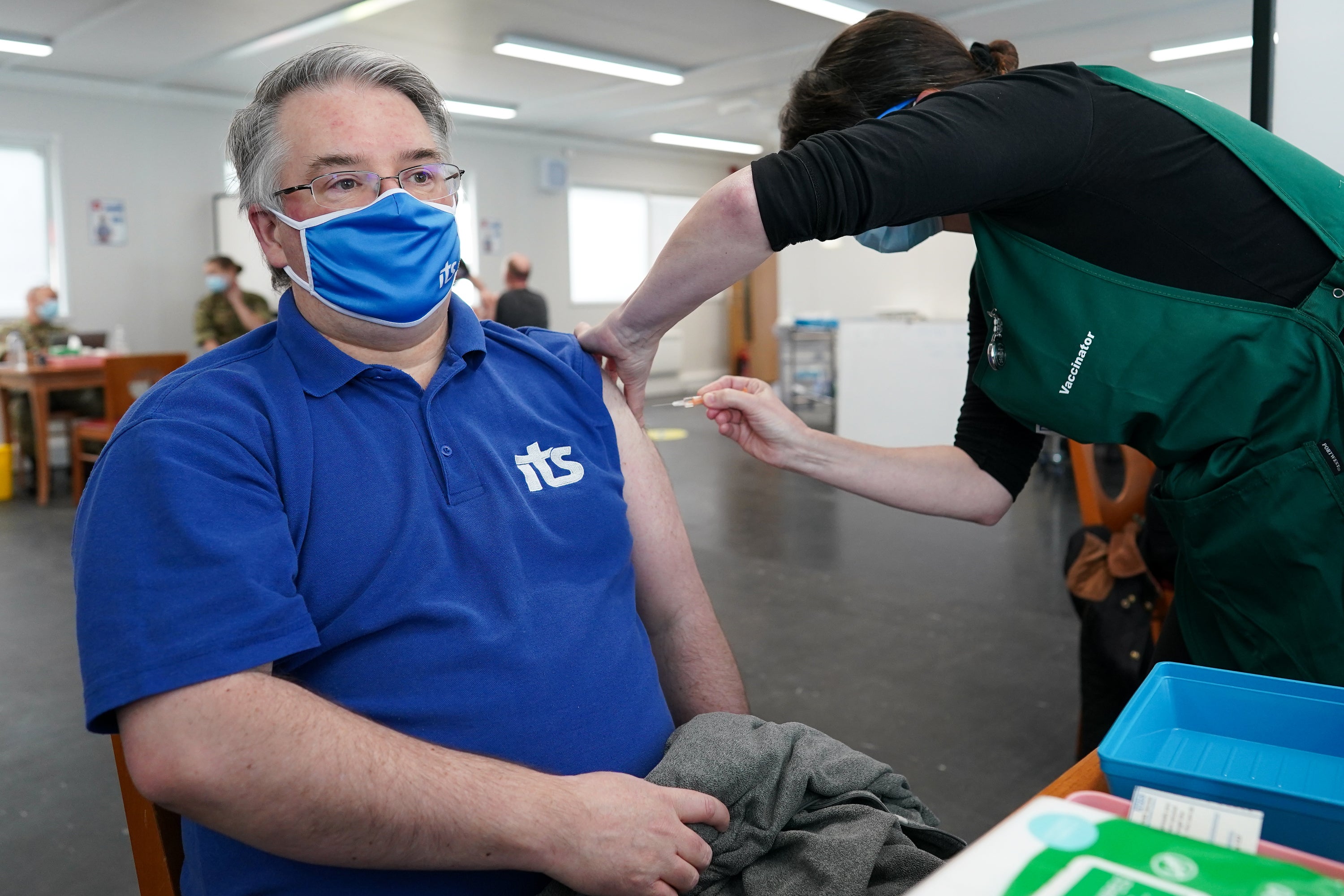Your support helps us to tell the story
From reproductive rights to climate change to Big Tech, The Independent is on the ground when the story is developing. Whether it's investigating the financials of Elon Musk's pro-Trump PAC or producing our latest documentary, 'The A Word', which shines a light on the American women fighting for reproductive rights, we know how important it is to parse out the facts from the messaging.
At such a critical moment in US history, we need reporters on the ground. Your donation allows us to keep sending journalists to speak to both sides of the story.
The Independent is trusted by Americans across the entire political spectrum. And unlike many other quality news outlets, we choose not to lock Americans out of our reporting and analysis with paywalls. We believe quality journalism should be available to everyone, paid for by those who can afford it.
Your support makes all the difference.People over the age of 70 will receive booster jabs of a Covid vaccine from September to protect them from new variants of Covid-19, the vaccines minister has said.
Nadhim Zahawi, the minister for Covid vaccine deployment, told The Telegraph that the vaccine rollout will see some people being given three doses within the first 10 months of the jabs being administered to the British public.
Those in the top four priority groups of the vaccine rollout so far will also receive the first booster shots, including those aged over 70, frontline NHS staff, social care workers and the clinically extremely vulnerable.
Mr Zahawi told the newspaper the “most likely date” for booster jabs would be September, adding that England’s deputy chief medical officer, Jonathan Van-Tam, believes that if the country is “going to see a requirement for a booster jab to protect the most vulnerable”, it would be around then.
Ministers expect up to eight Covid vaccines to be available by the autumn, he said, including a jab that can protect people against three different variants in a single shot.
A number of the vaccines will reportedly be manufactured in the UK, which could ease pressure on vaccine supplies amid tensions with the European Union as it faces shortages from AstraZeneca.
Read more:
- Follow Covid news live: Latest lockdown updates
- Von der Leyen says AstraZeneca must ‘catch up’ on vaccines to EU
- Lockdown roadmap dates: Which rules change on 29 March?
- Extreme lockdown laws extended for a further six months despite major Tory revolt
- Pfizer Covid vaccine produces ‘robust’ antibody response after first dose, new study shows
EU leaders gave their backing to more stringent vaccine shipment controls as the bloc struggles with its vaccination programme, but stopped short of imposing an export ban.
The European Medicines Agency (EMA) signed off moves that will increase manufacturing capacity and supply of vaccines, approving a Halix site in Leiden in the Netherlands for the production of AstraZeneca’s active vaccine substance.
The approval boosts the licensed sites to four. The agency also backed a new manufacturing site in the German city of Maburg, as well as more flexible storage conditions for the Pfizer jab.
European Commission president Ursula von der Leyen said AstraZeneca must “catch up” on deliveries to the EU before exporting doses elsewhere.
Meanwhile, prime minister Boris Johnson and US president Joe Biden discussed their vaccination programmes in a call on Friday afternoon.
A Downing Street spokesperson said Mr Johnson “stressed that global access to vaccines will be key to defeating the pandemic”.
Tensions over vaccine supply between the UK and the EU remain high, with French foreign minister Jean-Yves Le Drian accusing the UK of “blackmail” over its handling of exports.
He told France Info radio: “The United Kingdom has taken great pride in vaccinating well with the first dose except they have a problem with the second dose.”
But his assertion was denied by the UK government. A spokesperson said the UK is “on track to meet our vaccination targets and everyone will get their second dose within 12 weeks of their first”.

Join our commenting forum
Join thought-provoking conversations, follow other Independent readers and see their replies
Comments